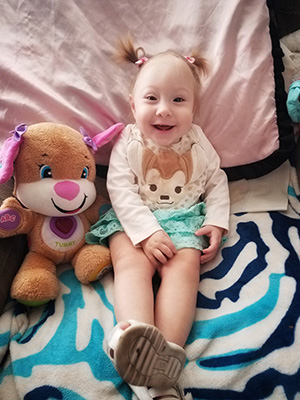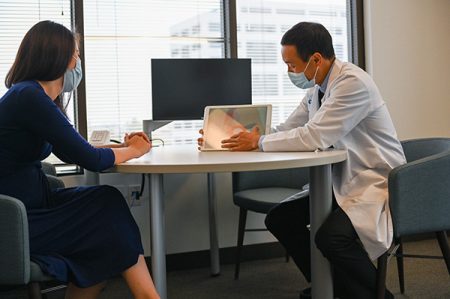Treatment of Neural Tube Defects
Specific treatment depends on the type of neural tube defect and the severity of the condition.
Spina Bifida Treatment
Treatment for spina bifida will typically include one or more surgeries to help fix the defect; however, there is no treatment for any nerve damage caused by the malformation. Many babies born with spina bifida also have hydrocephalus, which causes the head to swell from excess fluid buildup. Treatment for hydrocephalus includes insertion of a shunt to help drain the fluid and release the pressure inside the cranium. Additional therapy may also be needed for walking or bowel and bladder management. Most complications from spina bifida can be treated or managed to improve quality of life.
Other condition management includes rehabilitation, positioning aids, branches and splints or medical management.
Learn more about treatment at CHOC for Spina Bifida.
Encephalocele Treatment
The size, location and type of encephalocele will impact a baby’s survival of this condition, their quality of life after birth and the appropriate treatment for their condition. Surgery will be done to place the protruding sac of the brain and membranes back into the skull and close the opening. In some cases, multiple surgeries may be needed due to the location and region affected. While surgical treatment for the opening is typical, any neurological problems caused by this condition are permanent.
Learn more about treatment at CHOC for Encephalocele.
Anencephaly Treatment
There is currently no standard treatment for anencephaly. Treatment at CHOC is supportive and meant to keep babies as comfortable as possible during their time at the hospital. Babies with this condition usually live for only a few days or weeks after birth. Bereavement counseling is available at CHOC to support parents in coping.
Long-term Effects of Neural Tube Defects
The long-term effects of neural tube defects depend on the specifics of a baby’s condition. Any nerve damage and/or loss of function that are present at birth and caused by the NTDs will likely be permanent. For spina bifida, some cases have no lasting effects, while others may have difficulty walking or abnormal bladder or bowel dysfunction. With encephalocele, children can experience neurological problems, development delays, seizures or balance and coordination problems. Your child’s providers will work to keep long-term effects to a minimum. They will also work to help your child make the most of their capabilities. Physical and occupational rehabilitation, plus extra support in school, can help a child reach their full potential.















